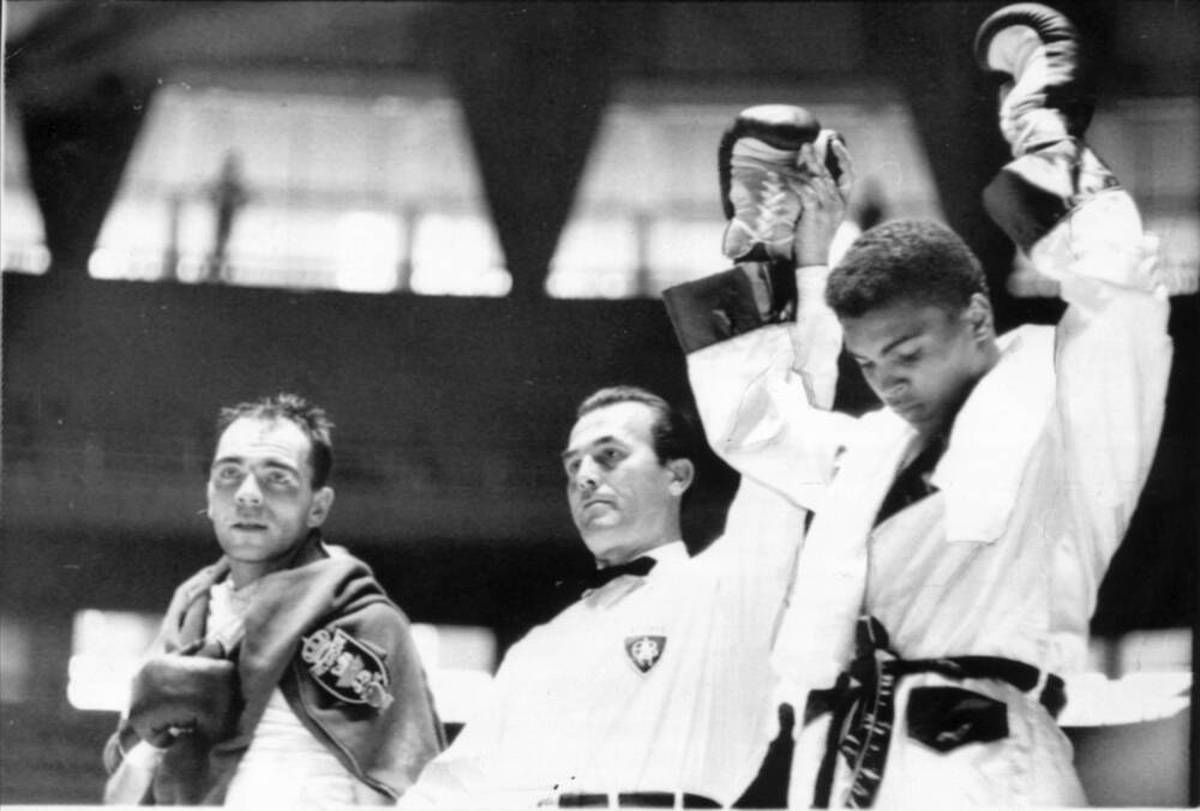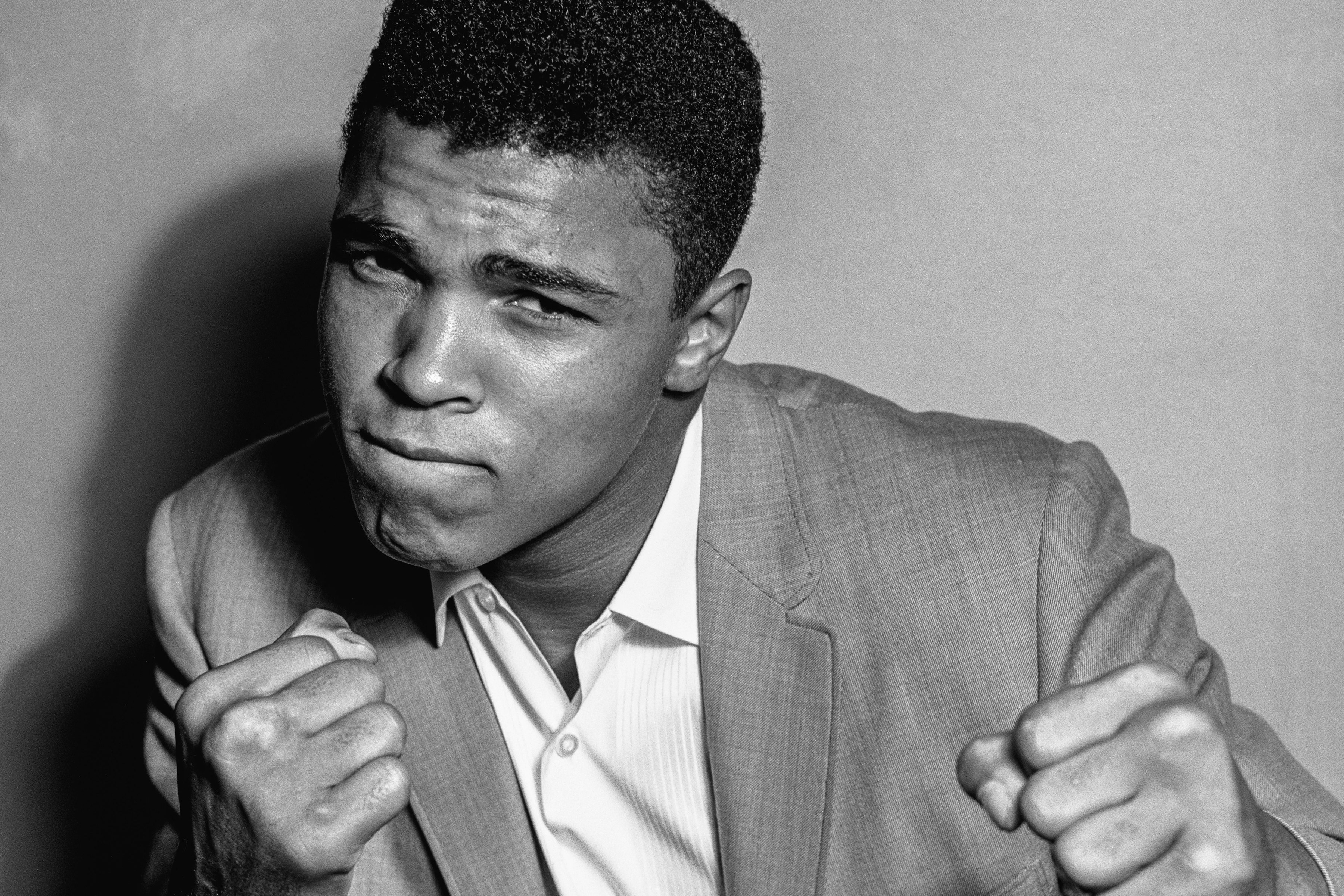Sixty-three years ago today, Muhammad Ali’s great star rose at the Olympic Games in Rome. Yet the boxing legend’s triumph almost didn’t come to pass.
Muhammad Ali is considered the greatest sportsman of all time. The boxer’s glorious career, accompanied by much politics, was unique. He laid the foundation of his success at the 1960 Olympic Games in Rome.
On 5 September, Ali was crowned Olympic light heavyweight champion in the Italian capital – it was the beginning of his development into an absolute superstar.
As important as the triumph was for him, the story behind it is incredible. After all, Ali almost didn’t make the trip at the time.
His refusal was due to the fact that the then 18-year-old was terrified of flying. There had been severe turbulence on his way to the Olympic qualifying tournament in Los Angeles, which had caused the young man great anxiety.
Ali wanted to take the train from America to Italy
That’s why, even though he had qualified for the Olympic tournament, he was determined not to travel by plane again. Instead, he asked the Olympic national federation whether he could come to Italy in another way.
His suggestion: either by boat or by train. While the officials considered the first option hardly reasonable, the second was simply impossible. “Too bad – then I won’t be going to the games,” replied Ali, who still went by the name Cassius Clay at the time.
His coach Joe Martin did not want to let this decision stand. He had trained Clay since he was twelve years old and moulded him into the boxer who fought everything in ground and pound in amateur boxing. Now, after all, a harmless plane was not going to stop the US heavyweight champion from making his grand entrance on the world stage.
In a long conversation in Louisville’s Central Park, Frazier finally convinced him that he had to win the Olympics first to be ready for the world title. That argument should have been enough for Ali, who was now ready to put his foot in the machine.
The “Louisville Tornado” conquers the Games
A trip on which Ali is said to have screamed with nervousness. Others claim he bounced all over the plane, predicting almost every athlete present’s chances of winning a medal.
Once in Rome, the “Louisville Tornado”, as they were later to call him, immediately drew attention to himself. In the first round they outclassed the Belgian Yann Becaus, whose name is said to have caused great laughter among Ali.
The same fate was to befall Gennady Shatkov, after all the 1956 Olympic middleweight champion. Next on the road to gold was Australian Tony Madigan, who was clearly beaten on points by Ali.

In the fight for gold, Ali then met Zbigniew Pietrzykowski and stated afterwards that he “absolutely had to win without leaving any doubt”. Earlier, a controversial decision in another weight class had caused incomprehension when the American Eddie Crook also won on points in a Polish-American duel.
A confident goal for the 18-year-old Ali, because the eight-year older Pole was clearly more experienced and had already fought 230 amateur fights at that time. So it was Pietrzykowski who irritated Clay with his unorthodox punches and was to hold the upper hand until the end of the second round.
Olympic champion Ali becomes “Mayor of the Olympic Village “
In the third and final round, the tide turned completely. Ali’s combinations poured down on the overtaxed Pole, who, to the amazement of the spectators, did not give up and stood firm. The result was indisputable: 18-year-old Ali was the Olympic light-heavyweight champion and had become the darling of the Games with his euphoric, sociable manner.
“Cassius was by far the most popular athlete in the village,” journalist Dave Kindred later wrote, and because of that, he was later declared “Mayor of the Olympic Village” by athletes and officials.
Ali was also mightily proud of his medal, which he was not to take off for the time being. “I didn’t take the medal off for 48 hours,” Ali explained, but it made him sleep worse: “I even wore it to bed. I didn’t sleep very well though. I had to sleep on my back, which I never did otherwise, or the medal ribbon would have cut my neck. But I didn’t care, I was an Olympic champion after all.”
The Olympic victory, however, was to be only the birth of Muhammed Ali, a champion whom the whole world would soon know forever.





